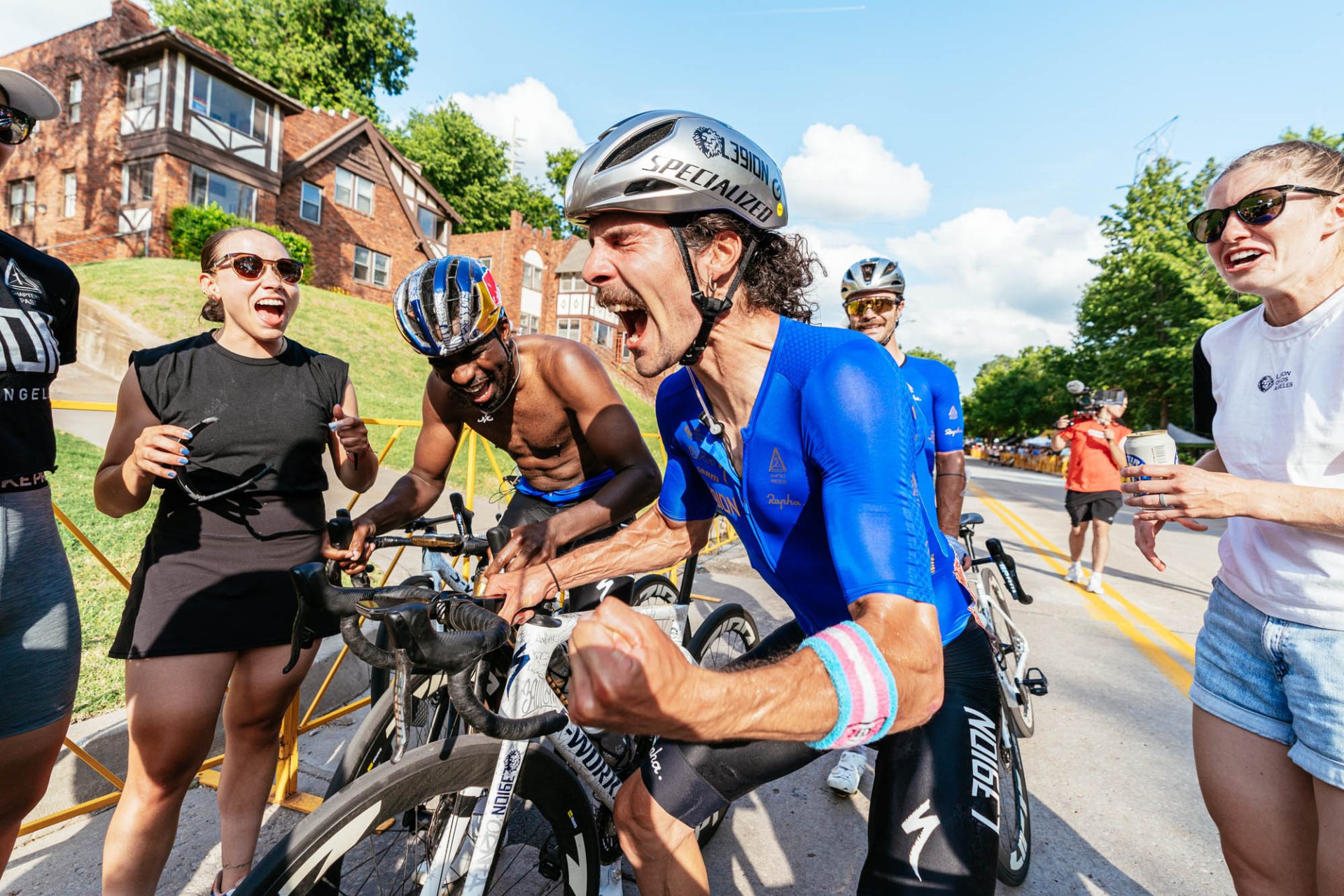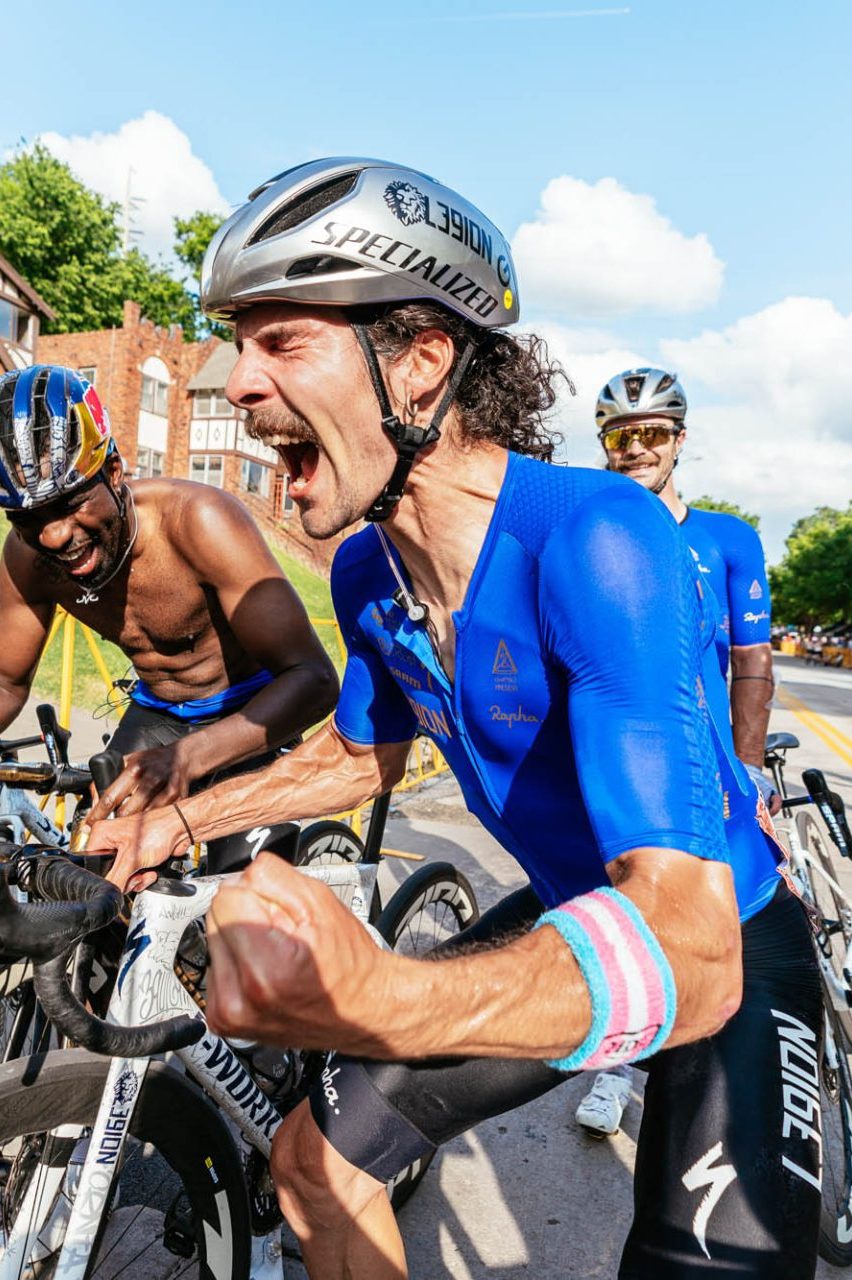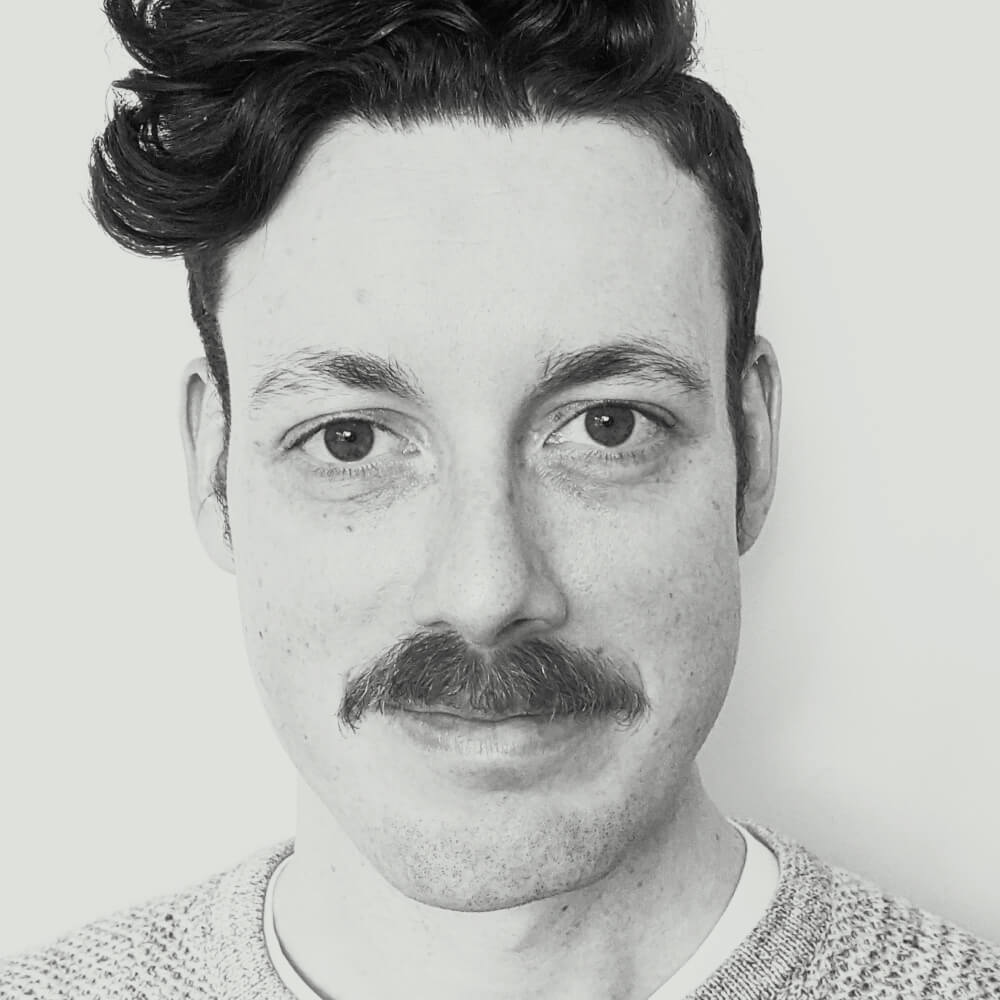The US cycling scene is in something of a flux state. As top stage races have declined, a series of ambitious new crit leagues have sprung up seeking to fill the void and offer a sustainable business model and development pathway for aspiring cyclists.
In that crit landscape, there’s one team whose profile far exceeds its competition: Legion of Los Angeles (stylised as L39ION). While that team has at times been polarising for its dominance and tactics, there’s a rider on it – the loyal domestique, Sam Boardman – who seems almost universally beloved. Prior interactions with him have revealed an articulate, compassionate individual with interesting things to say about the state of US cycling, how to grow it, and how to find fulfilment and happiness in the sport – no matter what level of rider you are.
Boardman is a strong rider, with top 10s the last three consecutive years at the US Road Race National Championships, a podium place on gravel at this year’s Sea Otter Classic, and an emotional win at the deeply atmospheric Tulsa Tough criterium this year. But it’s his work off the bike that is perhaps more instructive. Like styling his luxurious mane as a bleached Joe Exotic mullet to raise $10,000 for educational scholarships for disadvantaged young women in his adopted hometown of Whitefish, Montana, where he lives with his wife, fellow cyclist, Jess Cerra. Boardman is also an outspoken advocate for trans rights, an event organiser with Cerra, an elementary school teacher, and founder of a youth outreach program through Legion.
When Boardman announced last month that he was leaving Legion to pursue opportunities elsewhere, we touched base for this wide-ranging interview about his time with the team, what will come next, and how to be a beacon of positivity and inclusivity in the sport.
Editor’s note: This article contains discussion of some weightier themes including suicide and barriers to trans rights. For resources, see glaad.org.
Iain Treloar: So you’ve been with Legion for three seasons, and you’ve just announced that you’re not continuing next year. What was the journey like riding for the team?
Sam Boardman: My time with Legion was genuinely formative. I think the team created a momentum that we haven’t seen in the American domestic scene in a long time. Before then, you had the blue train, as they were referred to – United Healthcare, their crit squad – coming up against [teams like] Astellas, Hincapie. And this was right when I had joined the sport, so I looked up to those guys as these Goliaths in the sport. It felt pretty incredible to find myself on my own track where I was eventually able to join a team and be that kind of figure in the sport, in terms of the prominence, the dominance, that Legion had in 2021 and 2022.
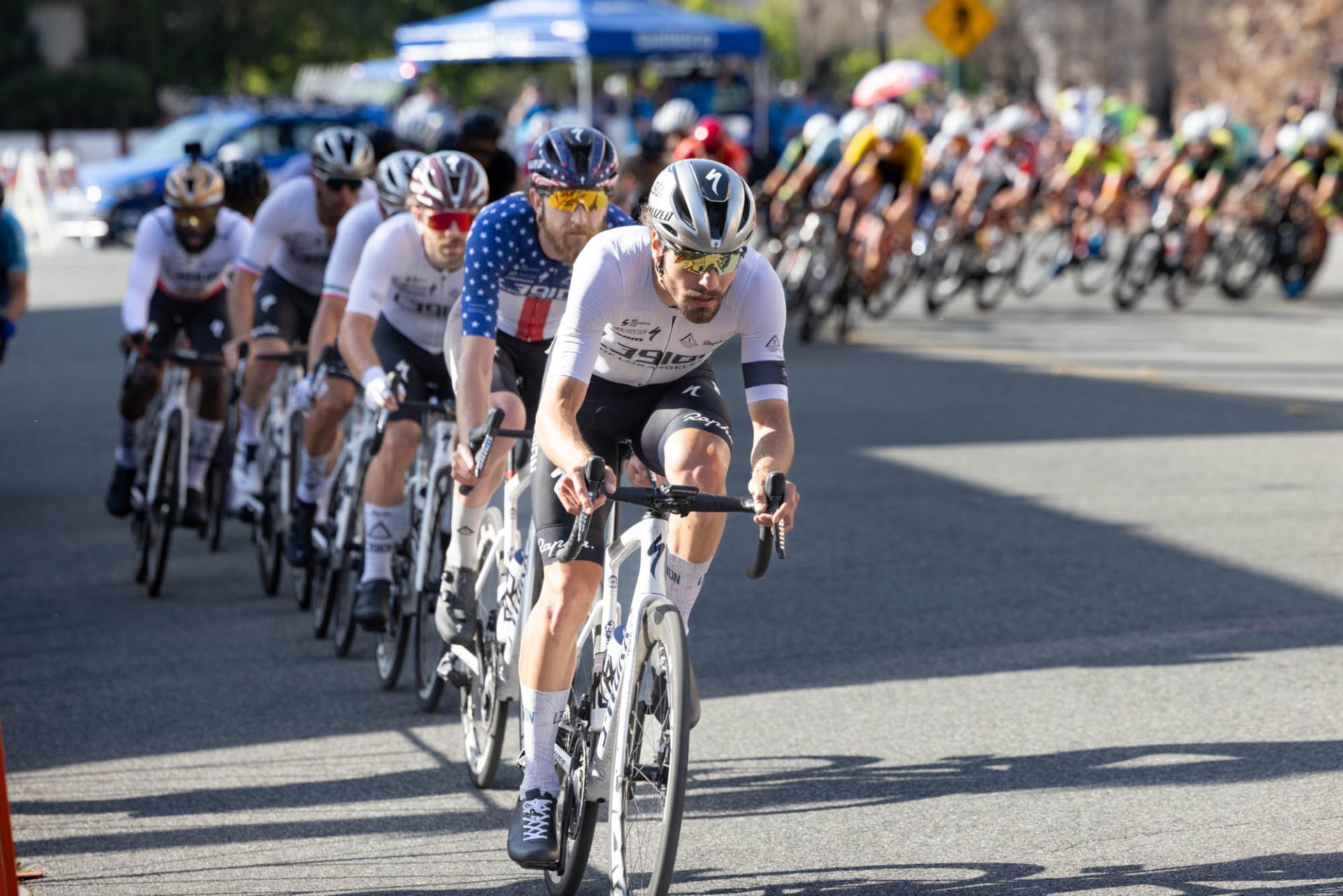
It was incredible to be a part of a team that had that kind of amazing momentum in building a genuine national intrigue for criterium racing in the US, and it was also just cool being part of a program that had tight-knit sponsors that were working closely with us. We worked with amazing companies like SRAM and Zipp who were incredibly invested, and I got to meet a bunch of very wonderful people in those companies who were very supportive, and not only in the racing endeavours. For example in the Junior Day Camp programs that I was trying to spearhead, which effectively gave the opportunity for younger riders – kids as young as nine, all the way up to 18-year-olds – to riding with us, ride with industry figures, and learn what it is like not only to be a professional racer, but also to be an employee in the industry: an engineer, a marketing specialist. That was my goal for it – to give kids an opportunity to see what it’s like to work in the bike industry and not just tell them that the only way you can be involved in bikes is by being in racing.
That was a large part of the mission of Legion – showing that stylistically, aesthetically, bike racing can be part of mainstream culture if you know how to utilise the tools correctly. It was a program that I think was at the forefront in the sport in trying to utilise social media, Instagram, videography, storytelling as one of its main marketable factors, rather than simply saying, “Okay, we won a bunch of races.” And on top of that, we did win a bunch of races, which is awesome. Winning is really, really cool. But what was more cool was the effort put into the documentation and storytelling of those victories. Love it or hate it, in the current content-based economy, that’s kind of what needs to happen. I think we were able to do that in a really engaging and emotional way.
IT: The Junior Day Camp Program – is that something that you wish that you had access to when you were coming up?
SB: Yeah, absolutely. I mean, I go back and forth because I always tell people – and I say this kind of semi-jokingly, semi-not – that if only I discovered cycling earlier, who knows what could’ve happened. And part of me genuinely laments the fact that I didn’t find it sooner in life, because who knows where I could’ve gone if I had. But especially in this day and age, where the competition is now, I’m also grateful that I didn’t discover it until I was 19.
Part of what I wanted to implement in these junior programs is telling kids that it’s okay if you’re not a Remco Evenepoel, a Tadej Pogačar, or whatever 16-year-old Jumbo has recruited into their development pipeline: you can still be involved in this sport. If you love bikes, you can still have a meaningful role in it. I see all these athletes that I started racing with not long ago at all – less than 10 years ago – who themselves were up-and-coming riders and they just burnt out because they’ve been doing it since they were 12-13 years old; they just lost interest in sport as it got harder.
Maybe this is coming from the perspective of someone who is turning 29 in the next calendar year, which in cycling years is like 70 based on how they’re hiring these days. But I really do like advocating for riders who started late in the sport, because it brings not only a level of experience outside of bike racing that is valuable to the sport, but I also think there is longevity that can be had from those riders.
When you’re an adult and you have been exposed to a whole lot and you realise “Wow, I still want to do this sport, I still have so much motivation to try and be the best athlete I can be and have an impact in my community within cycling,” I think that is what’s valuable.
I would have loved to have someone tell me that and say, “This is a sport, it’s real, it’s a thing you can do, but don’t feel pressure to come at it with this cut-throat mentality that could potentially ruin you.” Riding a bike is the greatest thing in the world, and I would hate to have someone enter the sport and then end up hating riding a bike because of it. That’s the last thing you want. I would have loved a program where I could meet someone who’s a pro and who could tell me what it’s like. Or meet an executive at a company, and just hear “I work with these riders, I work with bikes all day, I’m part of the people that develop the sport.” I think that would have been sweet.
IT: Is that program something that you are able to take with you and apply elsewhere, or is that something that sits within Legion?
SB: It’s something I came to Legion with the idea of and then wanted to develop because I have a background in elementary education. That’s what I see myself doing in my post-cycling life. So as someone who works with kids whenever I’m not actively travelling for training or racing or whatever, I volunteer, I substitute teach in schools in my local school districts and I have for the last couple of years.
I know how much impact riding a bike had on my own childhood. I wasn’t using terminology like this when I was 12 or 13, but the impact on my own mental health. Back then you only think of it as “I just need to get out and blow off some steam,” but truly, I think it was a mental health thing. I’d finish up my school work and for whatever reason, I’d be stressed out of my gourd, but I’d still take my BMX bike and go tool around in the neighbourhood for a couple hours after school because it just felt so freeing.
I know that there are kids who truly benefit from finding the liberation and independence that riding a bike can provide. It meant a lot to me to try to utilise the platform that the team have, because attracting kids to something niche like cycling requires a high profile.
I think what Legion has done in the last couple of years is acquire that high profile and make the sport more accessible in America, especially where cycling is seen as this French sport. Showing that bike riding and bike racing is cool.
IT: You’ve spoken about the risk of riders getting burnt out. What has helped you avoid being chewed up and spat out by the sport at 28, turning 29? How have you been able to completely avoid becoming jaded by the sport, and retain hope that this is a pathway for you?
SB: I think if we’re talking about retention of hope – it’s looking for programs that you think are going to fulfil the goals that you have and make sure that your time in the sport is filled with fresh challenges. I think it’s easy in sport to find yourself in a position where you’re doing the same thing over and over again. Change can be good; it can be scary but it can be good. As far as abating my own burnout, I can definitely point to instances where I felt like, “Oh my god, I’m just so cooked right now.” It boils down to trying to find something outside of bike riding.
A lot of the time, teaching is something that I enjoy doing as a complete mental respite from cycling. If I’m in the classroom, I am not thinking about riding it all – I’m thinking about helping this kid with math homework that I don’t know how to do anymore.
So I think that having something else truly is important – to have a more complete perspective outside of the sport in order to be a good bike racer. There are obviously genetic factors in play, but I’m trying not to fall into that trap of thinking that in order to become even better, I need to only be a bike racer and that is all there is. I actually think that is the worst thing that you can do yourself. You hear athletes talk about it, day in and day out – when the highs are high, they’re really freaking high, but when the lows are low, you are in the Mariana Trench because that’s all that you have. And when the days are not great, it is really, really hard to find something else to make you feel good. You need balance.
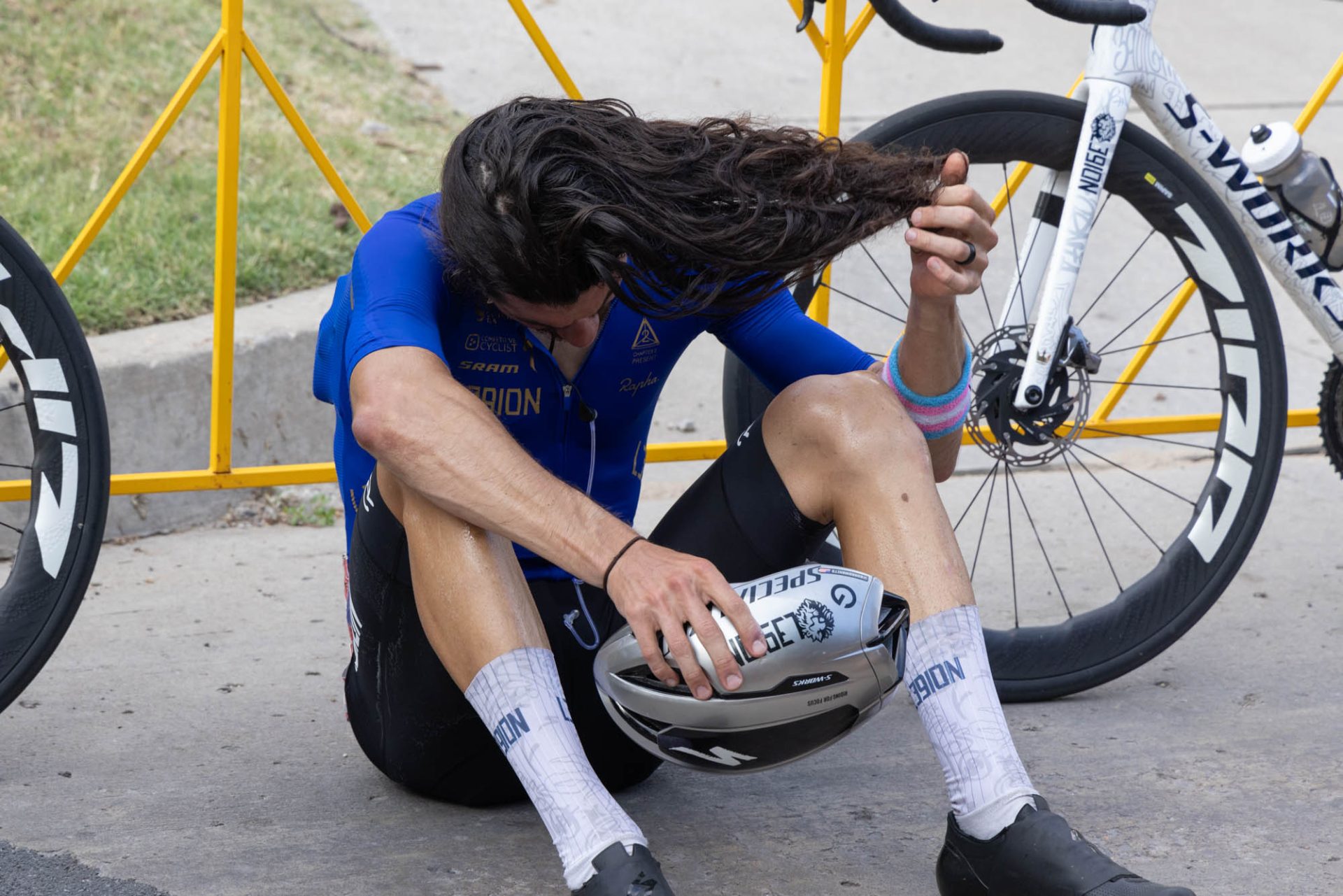
IT: That’s one of the things that sort of stands out to me about you as a rider, is that you do seem to have this more complete life – you’ve got obvious interests outside of cycling. You’ve got a fulfilling home life, you run events, you teach, you’re articulate … you are not just a bike racer. It is a counterpoint, I think, to just seeing athletes through one lens, reducing them to just their athletic performance.
SB: I try to be as complete a human as I can be, because I think at the end of the day this is a sport of individuals. As much as we want it to be a team sport, people follow individuals. That is what attracts people to supporting a team or supporting something.
So I try to be as humble and interesting a human as I can be given my life experience, but I also don’t think you should blame yourself for reducing people to athletes. First off, I don’t think it’s your fault and second, I don’t think it’s the athlete’s fault. I just think it’s the nature of the sport in general. It’s so easy for reductive powers to come into play because it’s such a demanding sport.
There’s something interesting about cycling where the training aspect of it – even the racing aspect of it – has this weird overtone of isolation. Even visually in a race, riders are kind of scattered all over the place, unless it’s a really well-oiled team. There might be a guy in a breakaway, or it might come together for a leadout, but if you’re not attuned to what that means, in terms of the team effort, it can truly feel like what you’re watching is a series of solo efforts. In training, it’s the same thing. You’re by yourself all the time for the most part, unless you are a very healthy individual who actively seeks out lots of training partners, which I would also recommend to everybody.
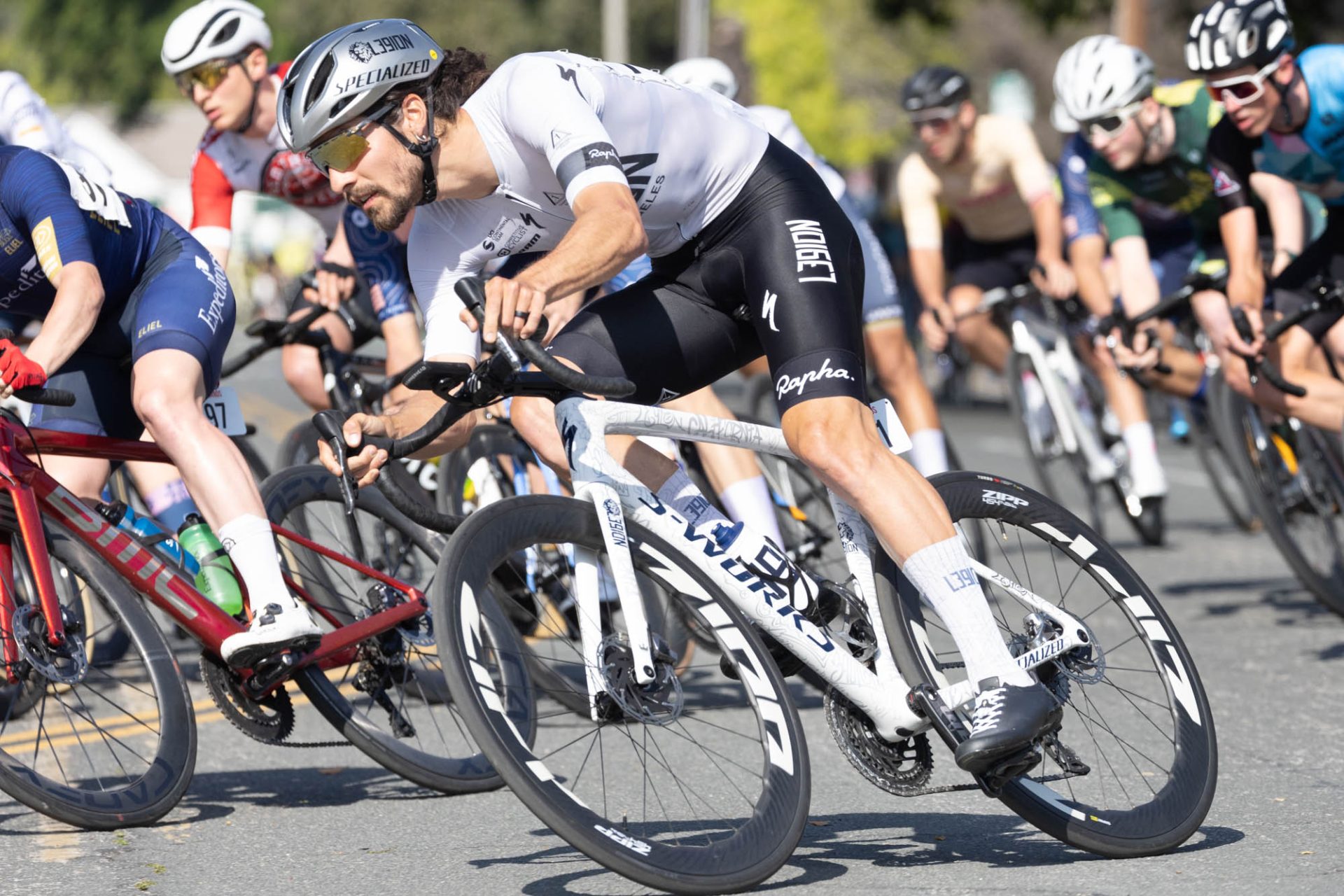
I think in a lot of cases that isolation is almost necessary to become a good athlete, in the sense that sometimes you’ve got to train alone because you’ve just got to do your workout, or your numbers are different from other people. It’s not a team sport where you need someone else to practise. So I think it’s very easy for athletes and the media examining those athletes to reduce them down to just athletes.
But I guess what I would like to show to a lot of people is that there are lots of really interesting folks in the sport. I think you see this more in the women’s peloton, which I think is largely because of the massive gap in pay between the men’s and the women’s peloton – that women had to pursue lucrative careers before they could pursue bike racing because bike racing couldn’t provide a livable wage for them.
Maybe I’m going off on a bigger tangent, but I just think that having that kind of holistic approach to life can actually help athletes. You can have an intellectual relationship with the sport and still be a good athlete – and not only enjoy the sport more but, I think, provide the sport with more. That’s what I’d want to achieve and what I’m trying to pursue.
IT: When you got your win at Tulsa Tough this year, there was this outpouring of support – everyone was obviously really stoked for you. I’m curious how it has been to navigate being this well-liked, wholesome figure in US cycling, and how that’s sat alongside the ‘crit beef’ and sometimes aggressive aspects of Legion [team co-founder Justin Williams was recently suspended for a second time for dangerous riding]. There’s obviously some strong personalities at play, and I’m curious how these things coexist within the team environment.
SB: For me, it’s just making sure that I just don’t get involved. I’m not one for the spotlight. My approach is that I give anybody the benefit of the doubt. I never want to assume that anyone does something out of malicious intent. That’s the way I approach everything, and until you give me a reason to think otherwise, my assumption is anything that offends either me or you or someone else is on account of lack of understanding, lack of empathy, or lack of communication. I feel like 99% of things can be solved by just talking and if they can’t, then maybe that’s an indication that you just leave it alone.
I’ve largely just managed to stay out of the crit beef fray. I don’t engage with the internet stuff just because I think that it’s not a face-to-face communication so it doesn’t feel like it can be productive.
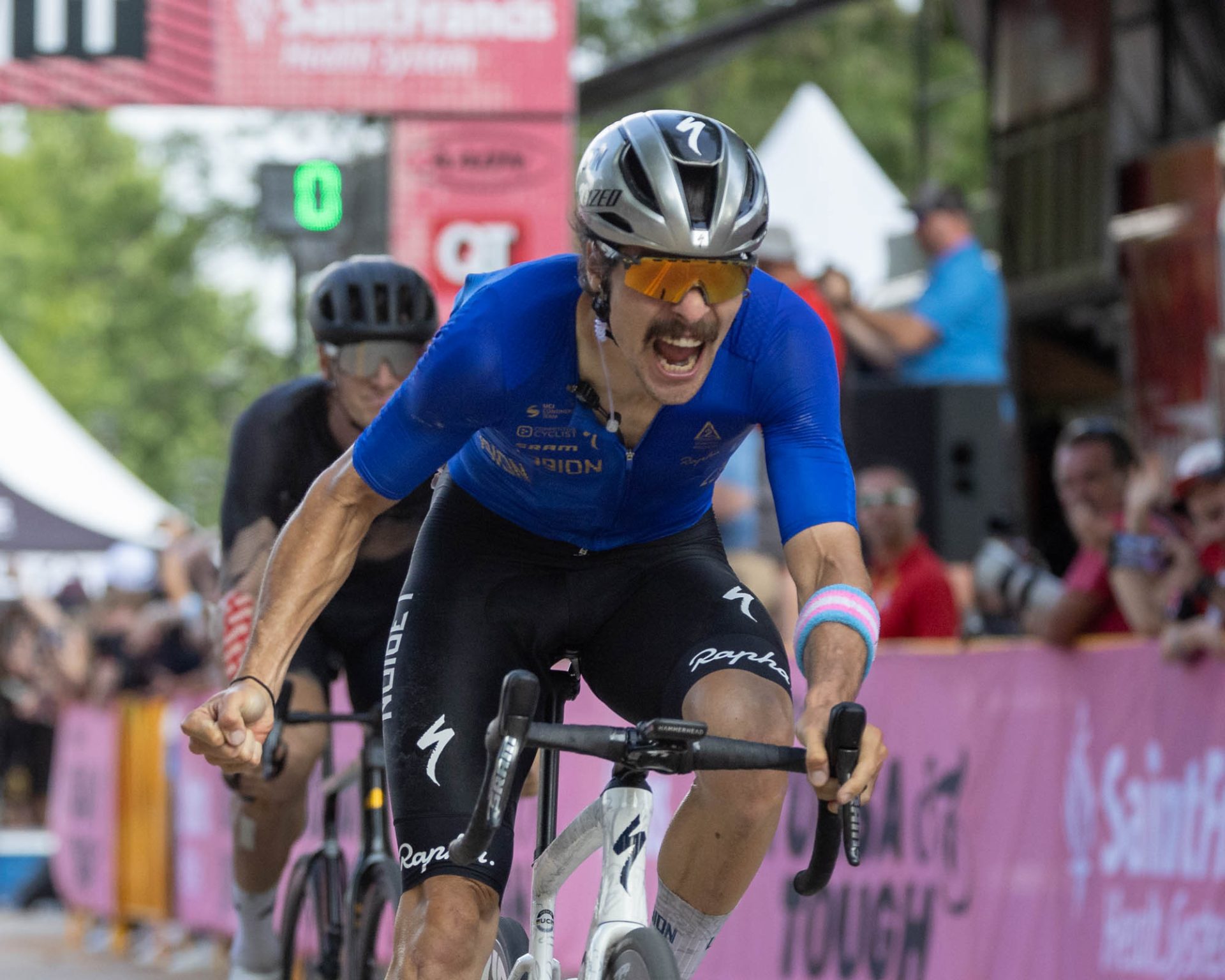
IT: But on the other hand, you’re also quite outspoken about causes that you really believe in. You have won races wearing a trans rights wristband, you’ve done fundraising through your wonderful haircut, and then there’s the education programs that you’re involved in. Those public expressions of your beliefs and what you consider important have also been relatively uncharacteristic in the sport.
SB: I think what I want to exude when I do that is just reminding people that no matter what little platform you have, it can be used for something that can be good and can be uplifting in terms of a purpose or cause that is bigger than yourself.
Why I’ve stayed away from the crit beef is because it has always felt like a very insular discussion of incidents that happen exclusively within the confines of the bike race itself, rather than a larger discussion of “How can we better the sport for people who maybe aren’t part of it right now?”
So, for example, with wearing the transgender wristband in races … I don’t know how familiar you are with what’s happening in the US right now, but there has been a huge movement to restrict bodily autonomy and restrict access to, for example, gender-affirming healthcare to trans people that has swept the nation as a hot-button topic.
And what has happened is it has cultivated and fostered a level of hostility towards people who are just trying to live their lives. In many cases, these individuals are some of the individuals who are most susceptible to suicidal thoughts or who are most likely to die by suicide.
I think the least that we can do is show a sign that we see them, we affirm who they are, and show that they have at least one friend in the sport that is welcoming them. If that helps empower someone to feel like they can join the sport that has given me as much happiness as it has and perhaps they can find that same level of happiness, I think that’s the job of any athlete. To try and persuade someone that they are welcome in your sport and in your space – and that not only are they welcome, but we encourage you to come and join us.
At the end of the day, I believe everyone started riding a bike not only because it was fun but also because someone else wanted to do it with them. I think those who disregard cycling’s social power or even the galvanising effect that bike racing can have on individuals is ignoring one of its most powerful characteristics – that riding a bike can be one of the most universal experiences on the planet, and it brings freedom, independence, and education. Everyone should be entitled to that, and no one should feel excluded from those places.
Whether it’s a wristband or speaking about my projects, or my junior day camp programs, or my beliefs with regards to trans athletes … these are concepts bigger than just racing or this sport itself. It’s about making sure that people have as many avenues to find happiness as they can.
IT: That’s quite a beautiful answer, which probably segues pretty well into us talking about your new team, Project Echelon. When we’ve been speaking in messages, you mentioned that there’s this outreach work component to that team. Would you be able to tell me more about that?
SB: The shift to Project Echelon [another US-based Continental team] is like an itch that I’ve been wanting to scratch for a long time in terms of a more expansive, ambitious, international calendar, and Echelon offered that opportunity, alongside these other reasons that you’ve mentioned. [Team President] Eric Hill founded the team in conjunction with a non-profit 501(c)(3) organisation with his friend who was a veteran who attempted suicide on multiple occasions. The idea was to utilise the team as not only a way to activate with ambassadors to raise money through whatever social media campaigns or through racing or whatever success they had, but utilising the athletes themselves as ambassadors for both sport and exercise as a way to empower and equip veterans to pursue healthier lifestyles and emotional outlets through cycling.
In the onboarding process with the team, I’ve learnt every rider on the team has a role in some way, shape, or form that helps bolster the work of the non-profit. Some athletes are responsible for what they call veteran onboarding, which is essentially a veteran who’s reaching out to become an athlete ambassador and member through the contact page on our website, which is available to any veteran within the United States – letting them know about all these resources that are available to them through Project Echelon.
That’s something that I find incredibly attractive, because it is so imperative to me that athletes are more than just athletes. It is so important to me to find a way to engage people with the sport in a meaningful and impactful way.
So that was one of the reasons why I wanted to join the program so much – because Eric’s foremost priority is the work of the non-profit. He wants to make sure that, yes, the team is successful, that he’s built a team that can try and win races and can be competitive, but he wants to build a team that is composed of people who are passionate about helping others, mainly by finding happiness and joy through exercise. That can be so pivotal for someone.
Resources
– Project Echelon encourages any US veterans looking to become involved in sport, or community members looking to contribute, to reach out via the team’s contact form. There is also a Zwift Club and e-racing league running through December and January.
– Project Echelon is organising a fundraising weekend gala in Oro Valley Arizona in March 2024. Find out more here.
IT: You also have spoken about how there are different sporting ambitions that you might be able to access with this team. Am I correct in saying that you haven’t raced in Europe?
SB: I did race in Europe briefly – my earliest foray internationally was in 2016, I’d just finished my sophomore year in college and gotten word from a teammate of mine at UCLA that he’d gone to Belgium and lived at this place called the Farm. One of my friends, James Stout, wrote something [over at The Old Place] that evoked so much in me because it felt like he was writing about my experience at this place. That time in Belgium was formative for me in a similar way that being on Legion was formative. It showed me what bike racing could be. I just loved my time spent there, but that was the only time I’ve ever spent racing in Europe – the rest of my international trips have been, it seems, everywhere else. I’ve raced in Canada, I’ve raced in the Dominican Republic, Rwanda, Malaysia, China, Japan – a bunch of other places. But after getting that first initial taste of international racing in amateur fields in Belgium, it felt like I had been transported to cycling Mecca.
It felt incredible to be in that environment. I hadn’t gone back and I’ve just been kind of bouncing around, with this itch that I’ve been wanting to scratch. That was one of the big draws to a program with as ambitious a calendar as Echelon, which is trying to break into some of those higher-tier European races.
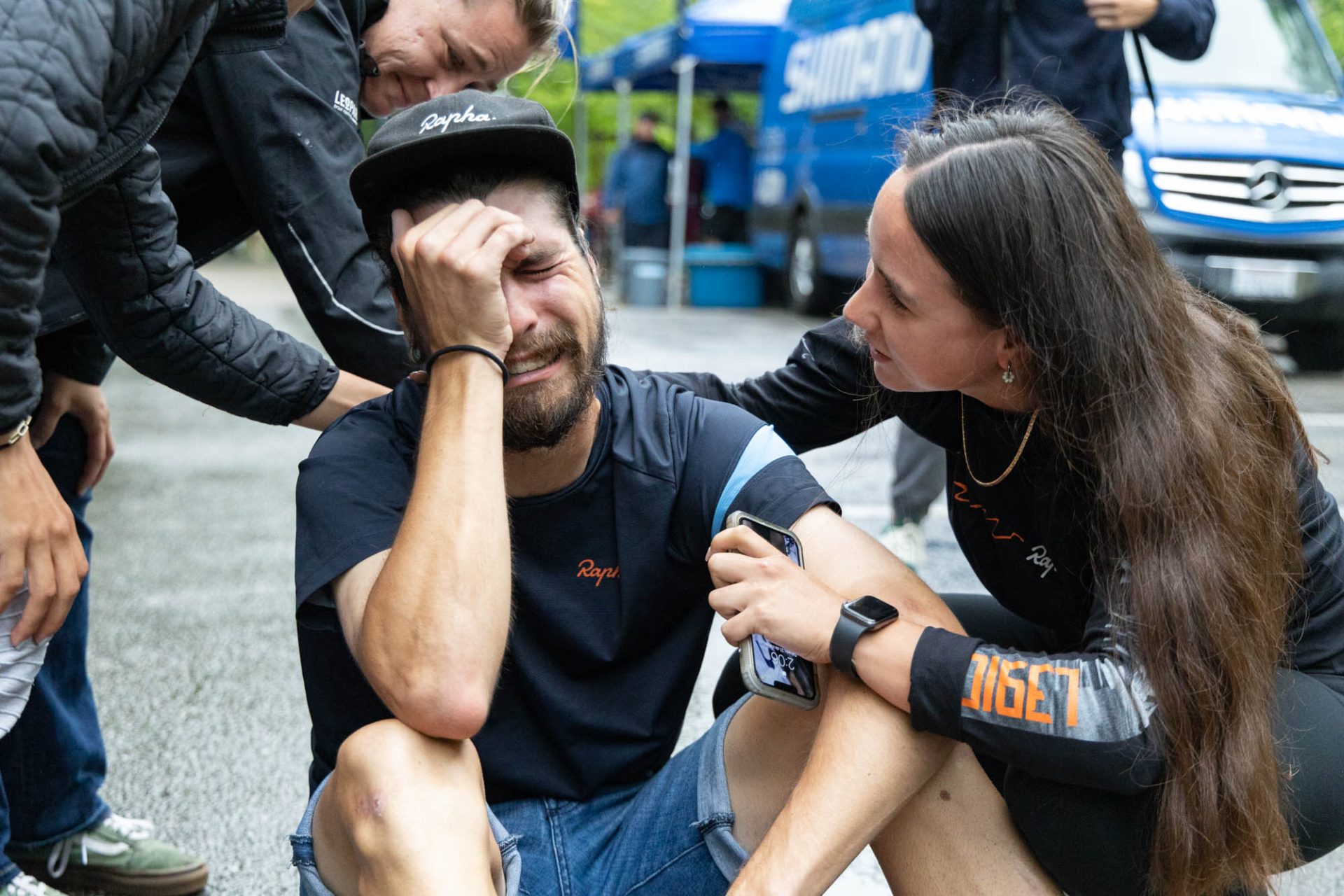
IT: Do you have any examples of what kind of races you might be at?
So right now, the team plans on attending Challenge Majorca starting in January and then, we got an invite to Tour de la Provence in France around that same period.
And then we’ve got a couple races in Portugal lined up, sprinkled throughout the season. And I think a couple of others. These are races that I would watch on TV and I would look forward to watching, and I think that’s kind of the thing that I’m excited about. These are the races that I’m like, “Man, what would it be like to race these races?”
I’m sure the answer is going to be some variation of terrifying and something else. But I think that at the end of the day that’s kind of what I was looking for, that challenge. To check that box and just say that I went and had a crack at it. After our final roster announcement of Scott McGill was made today, I think a lot of people can confirm this is a pretty freaking good team – so it’s going to be really, really motivating to ride for a program that has high expectations for its riders, but whose riders have high expectations for themselves.
IT: Will your role be as a domestique?
SB: I hope! Yeah. I alluded to this when I announced that I wouldn’t be coming back with Legion … part of the reason why that was formative was because I found that role, being a domestique. People seem to have this necessity for professional athletes to be ‘winners’ to be seen as of value in the sport. And I just don’t really buy that. You don’t have to win to be a good domestique. Part of what’s amazing about this sport is that it accommodates a variety of skill sets, a variety of body types, a variety of specialties, and you can be a good domestique by just being a good domestique. I genuinely enjoy doing that.
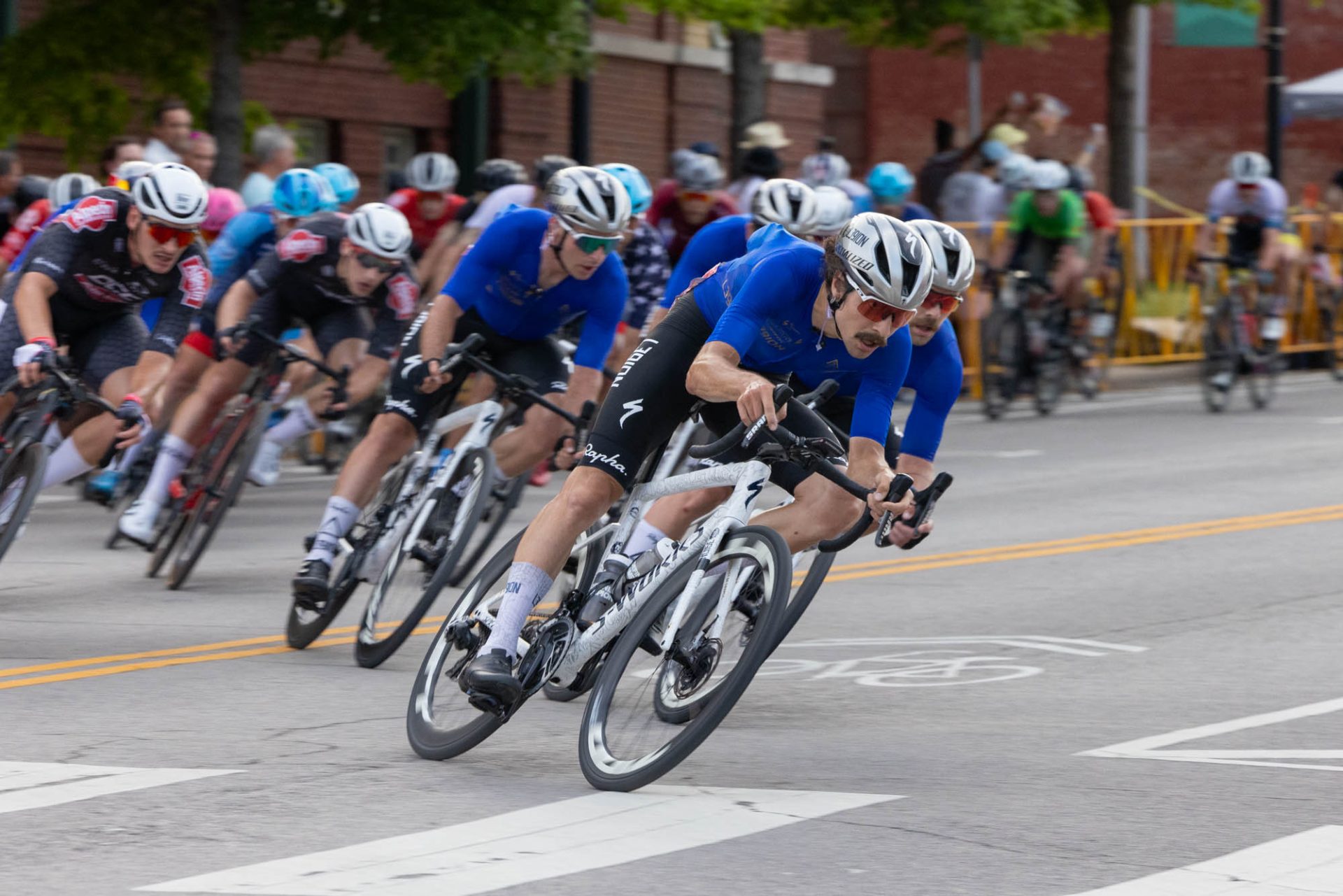
I don’t know how much I would want to be trying to contest a sprint in the level races that we’re going to be racing. If an opportunity presents itself, I’m obviously going to take it but, I mean, it’s scary – and I feel like I’m not going out on a limb when every professional who’s retiring is saying “I’m not going to miss bumping elbows at 60k an hour.” As a domestique, I can do my job and I can feel satisfied because I get joy out of seeing a teammate’s success. Knowing that you put your best foot forward and knowing that you tried and your teammate tried … I finish every race satisfied and I think that’s pretty awesome.
IT: You’ve got this contract with Project Echelon and you’ll have this opportunity to race in Europe and tick that box. Do you feel like there’s any unfinished business for you after that in the sport? Are you gunning for ProTeam or WorldTour or anything like that, or are you just content with where you are, and when the time comes to hang the bike up, you’re happy with that?
SB: I think there’s always going to be a desire to try and make progressive steps. If that opportunity were to present itself, I would be lying to say I wouldn’t take it, but I do think the only unfinished business that I have is just that experience racing in a European peloton, which I’m hoping to get with Echelon.
And beyond that, I think the only thing I would try and see is just … it sounds so trite, but just leaving the sport a better place than when I arrived. I want to make sure that people who enter the sport know that you can have the experience that I have. I’ve travelled around the world to go and ride my bike and race my bike – and the training is very hard, the racing is very hard, it’s very scary, but I’ve seen so many things in so many countries that I will never forget because they were so beautiful or they were so funny.
In Rwanda, I saw seven-year-olds flipping me off because that’s just what they thought they were supposed to do – as a Rwandan you boo everybody who’s not the Rwandan national team. And in Malaysia, I was riding up Genting Highlands and I saw two monkeys fighting on the side of the road over a piece of fruit. And I’d never seen a monkey in the wild before, and here they are. They’re just prancing around like nobody cares. At the same race, I almost drifted off a cliff because I was driving down the road and it was wet, and the tires on the van were bald. In Japan, I stayed over for a week by myself in Hokkaido and had this amazing experience exploring this new island by myself.
I want to express to people that it doesn’t take this lofty goal of becoming a Tour de France rider – if that opportunity were to ever present itself, I’m gonna take it, obviously – but it doesn’t necessarily take that goal to have those experiences that you can carry with you for your life. All it takes is motivation in the moment to utilise it for what it is.
I don’t ever want to try and live with the idea of unfinished business – the thought that maybe if you just did this, you’d be happy. Again, this is somewhere my vocabulary runs out and you fall back to trite sayings like “It’s not the destination, it’s the journey.” But it truly is like that. You have to make the most of what you have in the moment, right now. And what’s great about trying to find what makes you happy in the present is that the present exists. It’s right here and it’s right now and it’s tangible, and you can do something with it versus trying to pursue a random nebulous goal in the future.
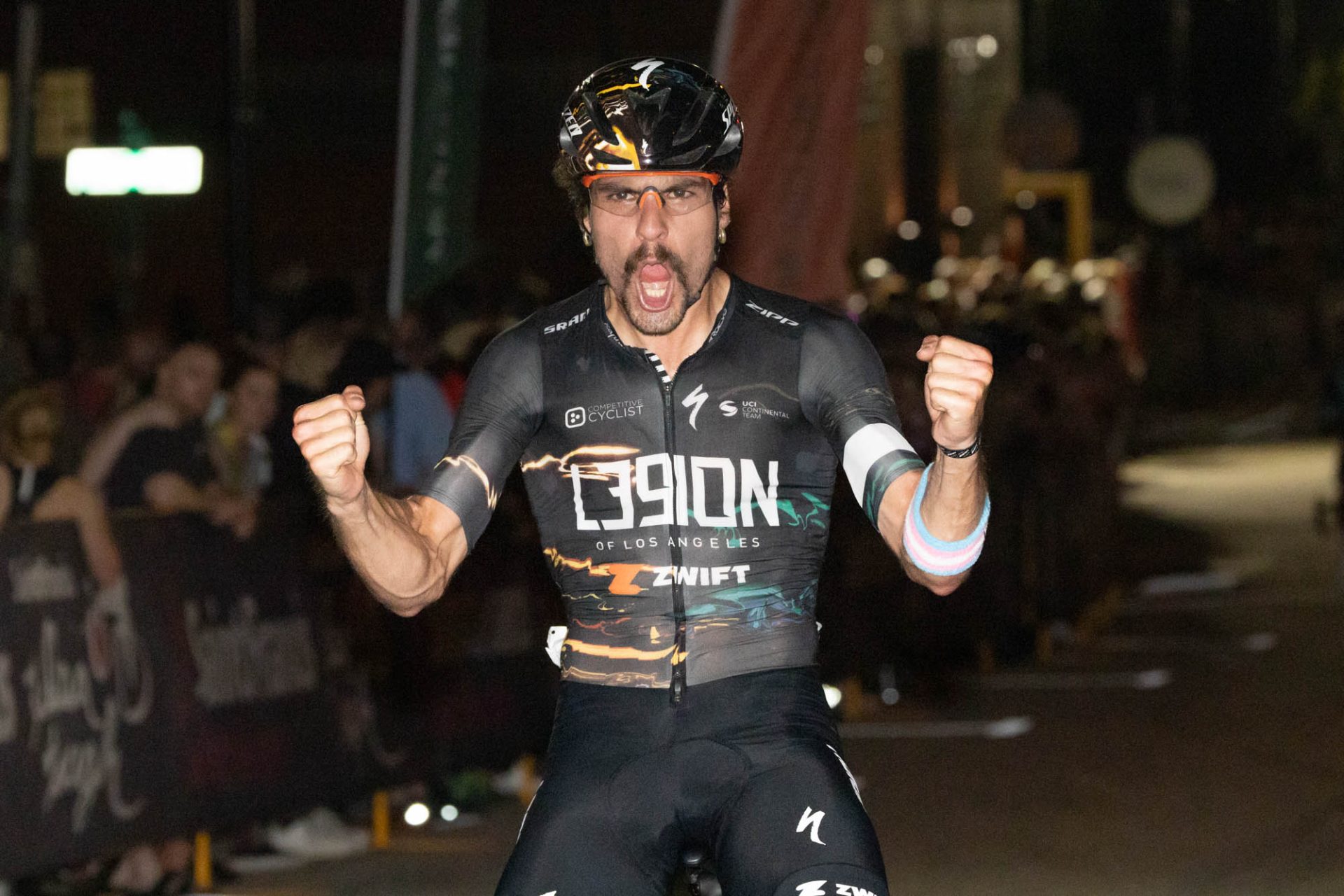
IT: You seem happy.
SB: I am. I’m excited. I’m motivated, I’m proud, and I’m grateful. I’m grateful for all the support, not least of which comes from my family and my wife who puts up with my anxieties and my neuroses and is the receptacle for literally every piece of venting in my life.
But you know, Jess is also the one who has to put up with me going, like, [exaggerated sulky voice] “Man, what’s the point?” And she says, “The point is you have this chance to make the most of an opportunity that a very small percentage of people get to utilise in their life and and take advantage of. So why not go and try and have the best of it?”
I’m happy because I truly feel like what I embody in the sport motivates other people to try and bring joy to others as well. There’s a lot of life analogues in cycling and I think the domestique is the version of the person who just wants to try and help people. That’s all I want to try and do, is try and help people as much as possible.
That’s what I would like to be in cycling. Helping people find that joy.
What did you think of this story?
